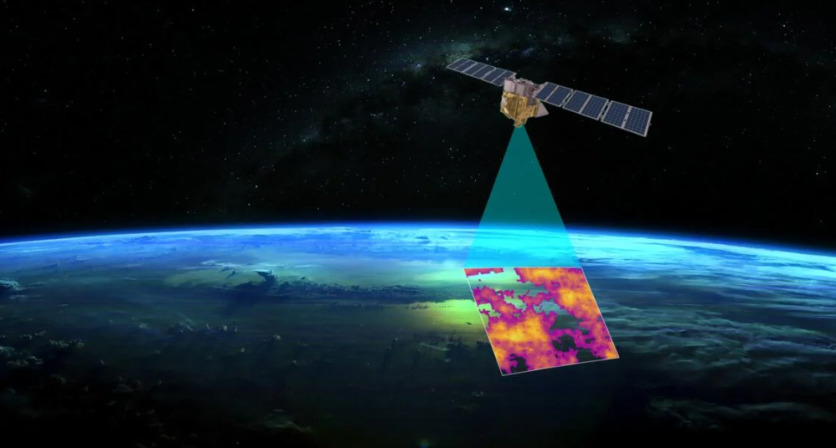In an effort to address methane emissions, Google has partnered with the Environmental Defense Fund (EDF) to monitor these harmful gases from space, Bloomberg reports. This collaboration seeks to use cutting-edge satellite technology to track and identify methane sources with unprecedented precision.
The collaboration centers around EDF's MethaneSAT satellite, slated for launch aboard a SpaceX rocket next month. This state-of-the-art satellite will orbit the Earth, mapping and measuring methane emissions from key oil and gas regions worldwide.

Tracking Methane Emissions with Cutting-edge Technology
Methane, a potent greenhouse gas, is a significant driver of global warming, responsible for about 30% of the current warming trend. Despite its detrimental effects on the environment and public health, methane emissions often go unreported and unchecked.
As the company highlights in a recent blog post, Google's expertise in artificial intelligence (AI) and cloud computing will play a pivotal role in analyzing the vast amounts of data collected by MethaneSAT. By harnessing AI algorithms, Google aims to identify methane hotspots and trace emissions back to their sources with unprecedented precision.
One of the primary challenges in combating methane emissions is accurately pinpointing their origins. However, with the combined efforts of Google and EDF, this task becomes more manageable.
Google's AI technology will identify oil and gas infrastructure from satellite imagery, such as well pads and storage tanks. This comprehensive mapping will enable researchers to correlate methane emissions with specific sources, facilitating targeted mitigation efforts.
Enhanced Monitoring
The importance of this initiative cannot be overstated, especially in light of recent climate commitments by governments and industries worldwide. Countries like the US, the European Union, and China have pledged to enhance the monitoring and reporting methane emissions as part of broader climate mitigation strategies.
Despite these commitments, methane emissions from fossil fuel operations remain significantly underreported. Studies have shown that actual emissions may be much higher than official estimates, highlighting the urgent need for improved monitoring and accountability measures.
Moreover, some industry players have been reluctant to acknowledge the extent of their methane emissions, raising concerns about transparency and accountability. However, with the advent of advanced satellite technology, these emissions can no longer escape scrutiny.
The accessibility of data is another crucial aspect of this partnership. MethaneSAT datasets will be available to researchers and policymakers through Google's Earth Engine platform. This open-access approach will empower stakeholders to track methane emissions, analyze trends, and formulate evidence-based policies to address this pressing environmental issue.
Google's collaboration with EDF marks a significant advancement in the campaign against methane emissions. This partnership can potentially transform how we monitor and reduce greenhouse gas emissions by leveraging satellite technology and AI-driven analytics.
Stay posted here at Tech Times.
Related Article : Google Pledges $26.98 Million to Narrow AI Skills Gap Across Europe

ⓒ 2025 TECHTIMES.com All rights reserved. Do not reproduce without permission.




